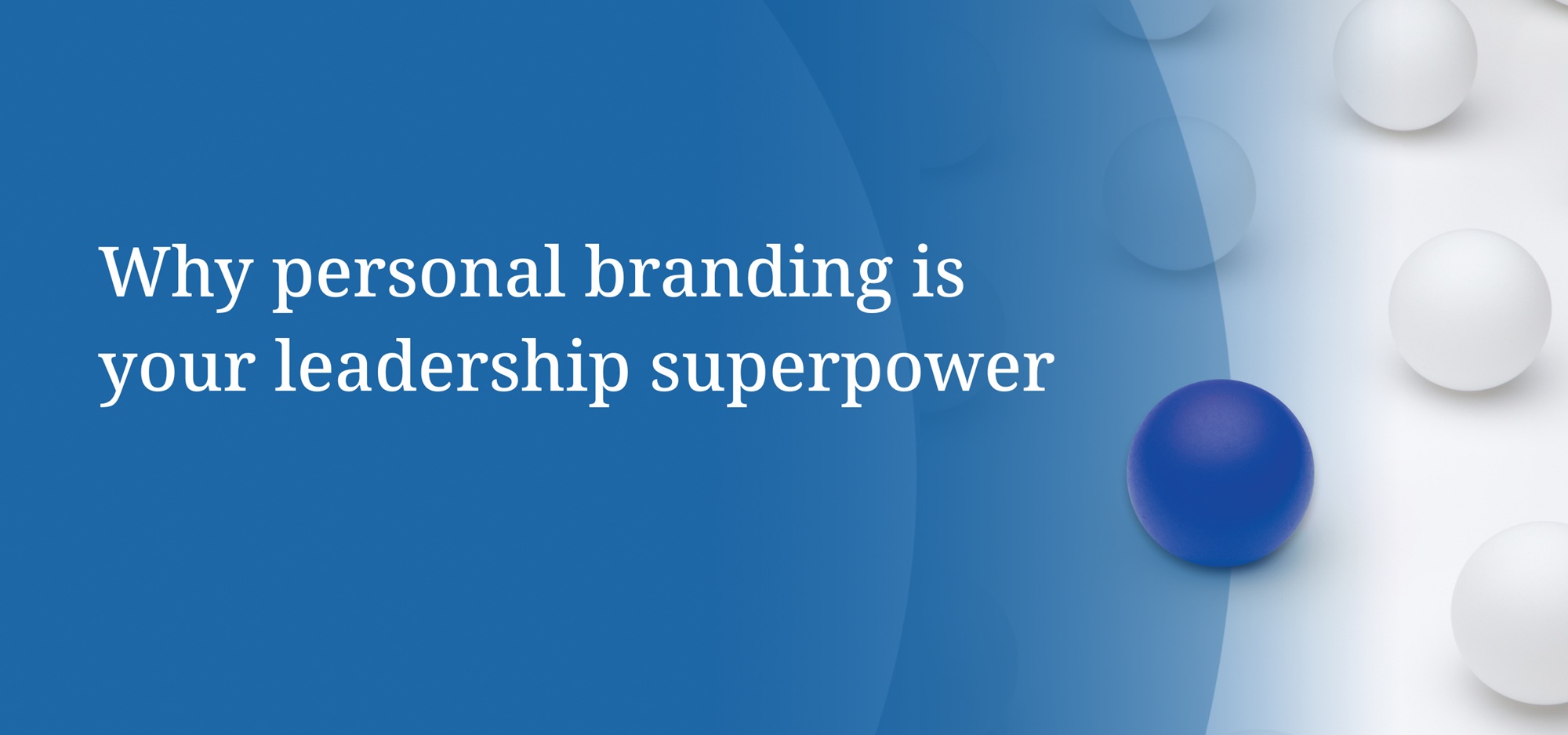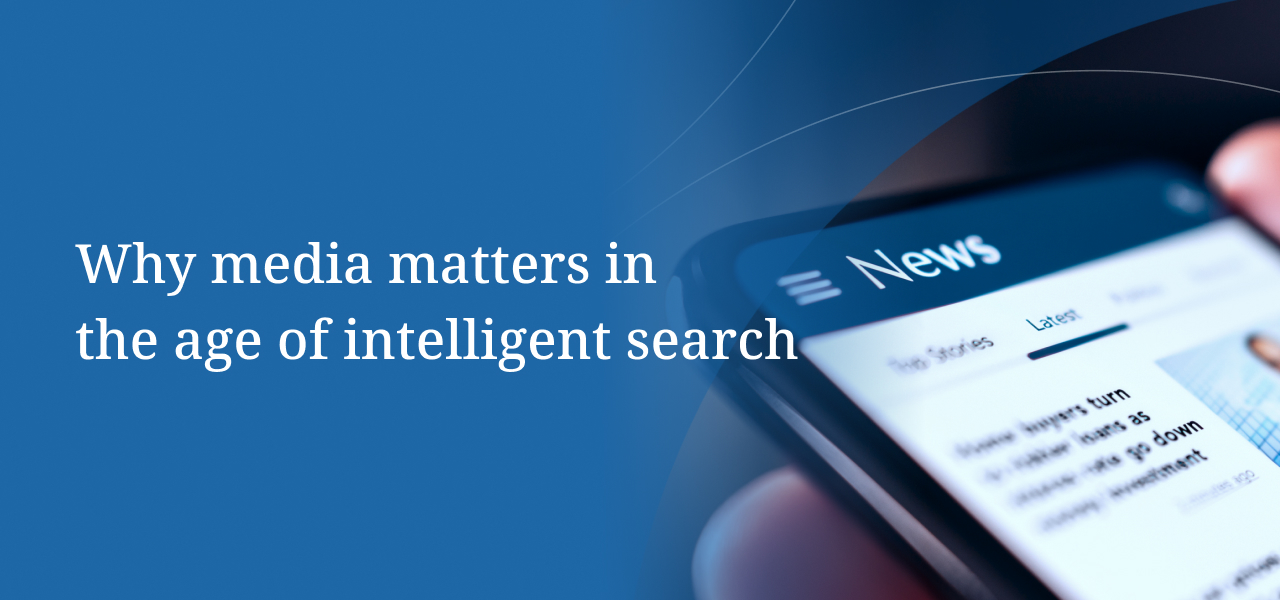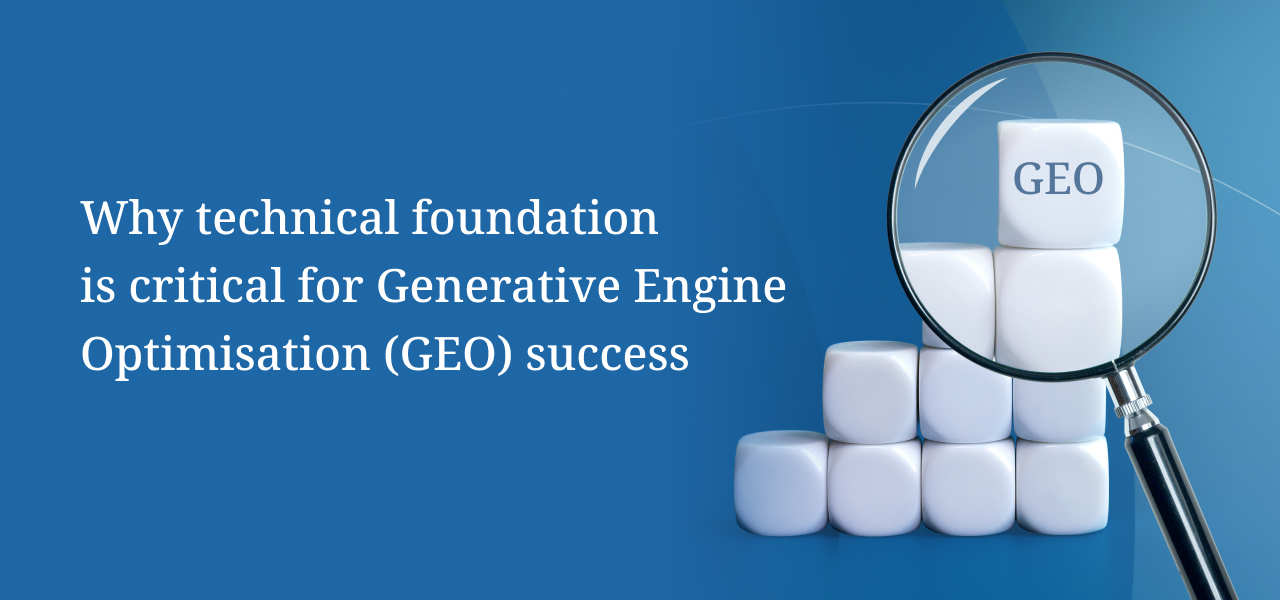Search Engine Optimisation (SEO) has long been considered an essential part of the digital marketing mix with the main purpose to drive organic visibility and discoverability. Yet the landscape is shifting. I have seen my industry peers obsessing over the latest martech tools and tactics, looking for quick fixes to improve performance, without acknowledging that the way people search for information online has fundamentally changed forever and continues to evolve.
Artificial Intelligence (AI) has changed the ‘search’ game. It now powers features like AI Overviews and voice assistants, while social platforms are becoming discovery engines in their own right. Generative Engine Optimisation (GEO) is also emerging as a new frontier.
While many businesses are questioning whether SEO is still relevant, I like to answer with an emphatic yes, but the rules are changing. Businesses need to urgently change their marketing approach taking into account that search is expanding beyond simple information retrieval, but also understand that human creativity remains essential in today’s AI-driven world.
Beyond informational search: an expanding user intent
Traditional SEO was built around informational queries; people typed keywords and clicked blue links. Today, an increasing number of searches end without a click. Workshop Digital’s analysis found that 60% of searches in the U.S. in 2024 ended in zero clicks, compared with 26% in 2022.
The dominance of SERP features, knowledge panels, People Also Ask (PAA), featured snippets, and AI Overviews means users often get answers directly on the search results page. Google’s AI Overviews, launched in May 2024, provide quick answers using generative AI and aim to highlight authoritative sources.
Zero click experiences can increase brand visibility but reduce click through rates. NoGood, a top growth US-based agency, notes that as AI and large language models (LLMs) become common, marketers must adapt by focusing on structured data and schema markup to improve their eligibility for rich search results. They point out that zero click searches accounted for roughly 58.5% of Google searches in 2024. At Manning & Co, we are also witnessing these trends with our clients and are actively helping them to adapt their approach.
Longtail keywords, interactive content formats (such as video and infographics) and content that satisfies user intent without giving away all the value can encourage users to visit a site. We are adopting many of these strategies for our clients with great results.
Search is also expanding beyond Google. The rise of social platforms like TikTok and YouTube as search tools, particularly among younger generations, underscores this shift. CTI Digital reports that Gen Z has reduced its use of Google by 25% for search, with 35% of Gen Z preferring TikTok for product discovery. And millennials are increasingly using Instagram and Facebook for brand engagement. This shift means businesses must create optimised content for social algorithms, prioritising engagement and authenticity.
Generative AI is also creating more changes in how we find information online. Google, for example, is now showing helpful answers right at the top of its search results in the AI overview section. These answers are tailored to what users search for and how they interact with the site. For marketers, this means they need to adapt to how people ask questions, make sure their information is easy for AI to understand, and try out new types of content that are more engaging than just written blog posts.
The rise of generative engine optimisation (GEO)
Generative engines are becoming major discovery platforms. As generative models like Perplexity, Gemini, and CoPilot grow, brands must ensure they are visible within these systems. Generative Engine Optimisation (GEO) complements traditional SEO by targeting both search engines and AI models.
While traditional SEO focuses on backlinks and keyword relevance, GEO ensures that AI systems like ChatGPT, Perplexity and Gemini understand the broader context of a brand and include it in generative responses.
Effective GEO strategies include identifying longtail prompts relevant to a brand, crafting concise intros and citations, and ensuring that AI-generated outputs accurately represent the brand. GEO does not replace SEO; rather, it extends optimisation into new AI-driven channels. We have seen the power of GEO content first hand as we help our clients add GEO content to their content mix.
The irreplaceable human element
While recognising the power of AI and the changing landscape, businesses mustn’t forget about the human element in marketing. Yes, AI can provide assistance in such areas as information organisation, data analysis or the selection of correct keywords to use in marketing. It, however, cannot come near the creative power, comprehension, and strategic and tactical planning that human beings possess.
According to The Business Legacy, while AI is restructuring marketing processes it is missing the mark in understanding how to evoke emotions and originality. Human inventors and thinkers are in in the driving seat as far as the background of the story, the culture and the meaning is concerned. They know how to read between the lines, manipulate their message in respect of the target audience, and present it as relevant, dynamic and contemporary – not something that AI can yet master.
With this in mind, AI should be regarded as an addition but not an alternative. AI is fast, but it does not have the level of understanding of emotions, cultural contexts and true creativity required by business to create meaningful content. Doing so keeps the human factor intact to create trust. Experience and expertise are rewarded in the Google E-E-A-T guidelines. In a world where AI is potentially used to produce misleading or inaccurate content, displaying authenticity, openness, and heart is a competitive advantage.
Five practical SEO strategy recommendations for the modern marketer
1. Prioritise user experience and EEAT
Focus on high quality and authoritative content on your website and ensure your website is fast, mobile-friendly and easy to navigate. Demonstrate expertise and trustworthiness, particularly in topics where AI may generate unreliable answers.
2. Optimise for zero-click results
Incorporate structured data and schema markup to increase the likelihood of appearing in featured snippets, knowledge panels, and AI Overviews. Target longtail keywords and produce mixed content formats (e.g., videos, infographics) that encourage users to click through for deeper information.
3. Expand beyond Google
Develop a presence on social platforms like TikTok, Instagram and YouTube, and tailor content to each platform’s algorithm. The shift to social search among Gen Z and Millennials makes these channels critical.
4. Invest in Generative Engine Optimisation (GEO)
Tailor your content strategy to AI models. Write compact, well-organised text with quality citations and context so generative engines can add your brand in a meaningful way. Monitor and check the AI responses so that your brand is not depicted incorrectly.
5. Blend AI with human creativity
Use AI for efficiency outlines, keyword research, and technical optimisation, but rely on human writers and marketers to craft narratives, maintain tone and ensure cultural relevance.
SEO is not dying, it is evolving. The burst of AI-driven search capabilities, zero-click search, and generative engines has seen the purpose of search go beyond loudly guiding people to webpages. It is all about service to varied user intent, speedy answers, facilitating product and service discovery within social networks and providing an authentic and personalised experience.
The modern marketer must adopt a new mindset and toolset to succeed in this fast-changing environment. They also must ensure they are optimising for both search engines and generative models using engaging multi-format content that showcases the human factor.
Are you ready to take the next step? Discover how Manning & Co. can elevate your business with our expert, engaging and award-winning integrated marketing services.
Let us help you get on the front foot and transition your SEO and content marketing efforts that drives remarkable results quickly.




